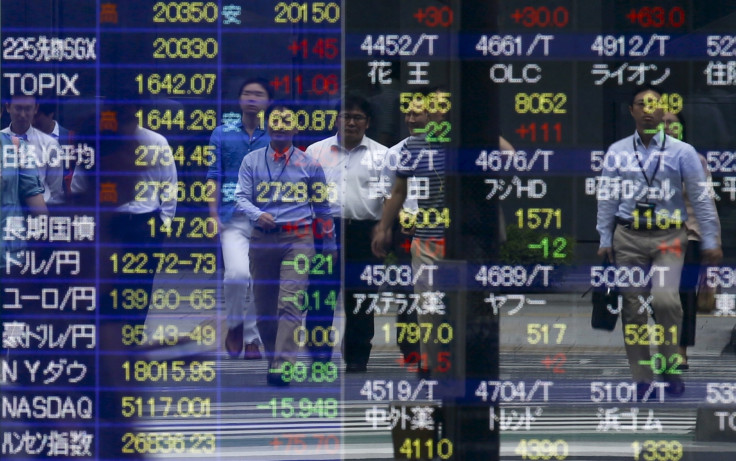Greek debt crisis: Asian markets rattled as Greece closes banks ahead of referendum

Asian markets have sunk into the red on 29 June, amid worries about Greece, where banks were closed and money withdrawal controls announced in connection with the referendum over its bailout terms.
Japan's Nikkei 225 is trading down 2.06% at 20278.60 as at 5.40 am GMT just before closing. Hong Kong's Hang Seng is trading at 25949.30, down 2.68%, while China's Shanghai Composite has plunged 3.75% at 4035.48.
Australia's S&P/ASX index fell 2.17% at 5425.70, while India's BSE Sensex fell 1.82% at 27307.52, after opening in the red.
It is all about Greece for markets this week, as the Greek government announced that it has decided to keep its banks closed for a week until after the referendum on 5 July and to limit withdrawals from ATM machines to €60 (£40, $67).
The emergency measure was announced after the European Central Bank (ECB) refused to increase additional funding to the country. The Greek government earlier walked away from negotiations and will let the people of Greece decide on the creditors' plans for reform.
The Asian markets' fall was led by China, where a move by China's central bank over the weekend to cut interest rates failed to yield the intended result. The main index has fallen 21.9% from a high on 12 June, crossing the 20% threshold that defines a bear market.
On 27 June, the People's Bank of China (PBoC) cut its benchmark lending rate by 25 basis points to 4.85% and its one-year deposit rate by the same amount to 2%. In addition, the PBoC will conduct targeted reserve requirement ratio (RRR) cut towards financial institutions.
"[The] rate cut and targeted RRR cut can have a 'one stone two birds' effect, that is, it allows the PBoC to ease policy to boost the sluggish economy while sending a policy signal that authorities do not want to see a bear equity market, either," said economists at ANZ bank.
© Copyright IBTimes 2025. All rights reserved.





















